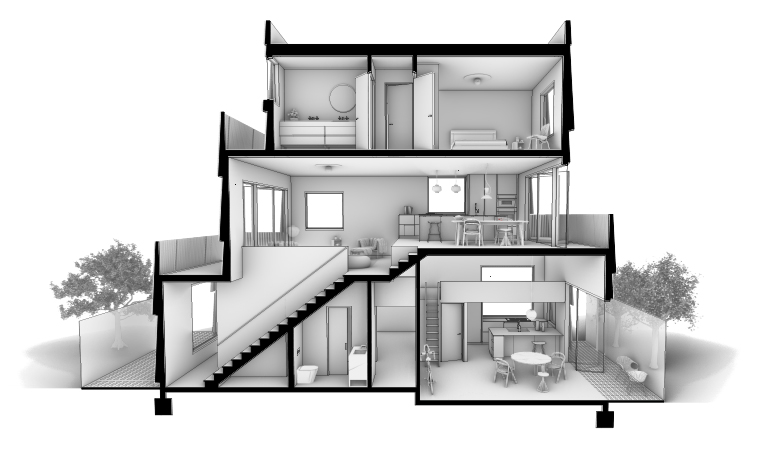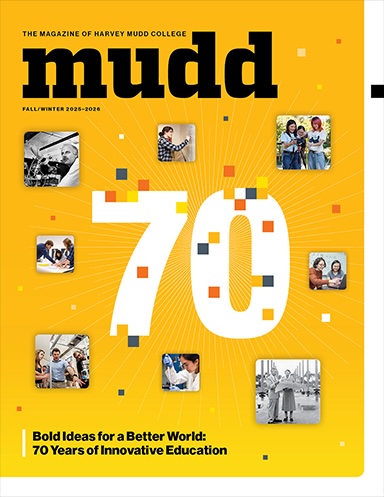Gu Designs Award-Winning Architecture for Competition
August 20, 2025
A design project by Harvey Mudd College architecture professor Jia Yi Gu and her design studio received top honors in the Small Lots, Big Impacts competition, an initiative of the city of Los Angeles that explored ways to address the housing crisis.
Approximately 2,000 vacant lots throughout Los Angeles are owned by the city. Small Lots, Big Impacts tasked designers, architects and students to propose viable alternatives to the detached house homeownership model on a selection of the lots. Participants’ designs addressed architectural and community resilience, strategies for expedient construction and cost-effective development approaches.
Gu’s project, “Households,” was produced via the Spinagu studio, which Gu co-founded with Maxi Spina. “Households” demonstrates an innovative approach to residential architecture, challenging the traditional one-to-one definition of a household by the U.S. census. The Small Lots, Big Impacts initiative, says Gu, advocates for small-scale development and to convert single-family neighborhoods into slightly denser communities.
“Contemporary household structures are fluid, frequently doubling, dividing or merging due to life events such as divorce, cohabitation, caregiving for kin or integrating home businesses and even during climate emergencies,” Gu says. Therefore, architecture should be adaptable to these changing shapes. The idea is that by changing the architectural norms of single-family homes, “gentle density” can foster connections between diverse households, generations and living arrangements.
Gu’s project addresses several obstacles facing housing development in Los Angeles. “Some of the biggest challenges with housing right now in Los Angeles is that any changes to housing design to accommodate life events like a divorce or a child entering adulthood takes a long time through the permitting processes,” she says. ‘Households’ addresses this by providing a compelling vision for flexible living, where simple architectural devices like a share-door allows families to change the way they share or shape spaces. The competition jury praised the design for its “successful material quality, strong interior-exterior relationships, and compelling narrative,” also noting that the building “already looks like it is from Los Angeles.”
In the second phase of the Small Lots initiative, the city of Los Angeles will award small, underutilized parcels of city-owned land to qualifying architect-developer partners to construct housing prototypes. Developers may select the designs as their projects, and their developments will be open source so that the entire process, including lessons learned, design approaches, policy implications and strategies for practice, will contribute to strengthening the city’s housing development community.
At Harvey Mudd, Gu and her students think about the ideas and processes that shape the built environment. This fall, Gu is teaching several courses, including one on ecological material supply chains for design, the history of Harvey Mudd campus architecture, and a course of the history of Los Angeles architecture with a focus on postmodern design, in preparation for a major exhibition in 2028.
